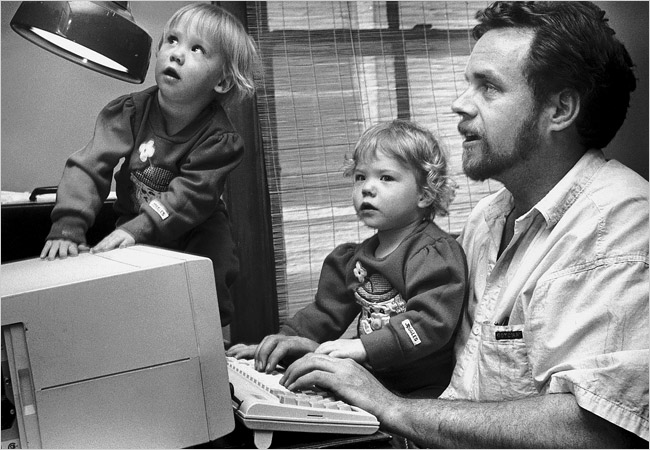If you read this blog regularly, you know I adored David Carr, someone I never met except through his writing. His success was improbable, having previously survived a pitiless drug addiction–a surrender and an onslaught. Almost as unlikely was that he maintained his soulfulness inside a corporate behemoth like the New York Times, appearing unchanged, unreconstructed, unvanquished, perhaps inoculated from the plague of phoniness by the earlier taste of poison. It doesn’t surprise me that in his final column he hoped for a second chance for Brian Williams. Carr himself was one of the best second chances ever. He will be missed. From his book The Night of the Gun, in which he searched for a face that was strange yet his own:
Am I a lunatic? Yes. When am I going to cut this stuff out? Apparently never. Does God see me right now? Yes. God sees everything, including the blind.
Trapped in drug-induced paranoia, I began to think of the police as God’s emissaries, arriving not to seek vengeance but a cease-fire, a truce that would put me up against a wall of well-deserved consequences, and the noncombatants, the children, out of harm’s way.
On this night — it was near the end — every hit sent out an alarm along my vibrating synapses. If the cops were coming — Any. Minute. Now. — I should be sitting out in front of the house. That way I could tell them that yes, there were drugs and paraphernalia in the house, but no guns. And there were four blameless children. They could put the bracelets on me, and, head bowed, I would solemnly lead them to the drugs, to the needles, to the pipes, to what was left of the money. And then some sweet-faced matrons would magically appear and scoop up those babies and take them to that safe, happy place. I had it all planned out.
I took another hit, and Barley and I walked out and sat on the steps. My eyes, my heart, the veins in my forehead, pulsed against the stillness of the night. And then they came. Six unmarked cars riding in formation with lights off, no cherries, just like I pictured. It’s on.
A mix of uniforms and plainclothes got out, and in the weak light of the street, I could see long guns held at 45-degree angles. I was oddly proud that I was on the steps, that I now stood between my children and the dark fruits of the life I had chosen. I had made the right move after endless wrong ones. And then they turned and went to the house across the street.
Much yelling. “Facedown! Hug the carpet! No sudden movements!” A guy dropped out of the second-floor window in just gym shorts, but they were waiting. More yelling and then quiet. I went back inside the house and watched the rest of it play out through the corner of the blind. Their work done, the cops loaded several cuffed people into a van. I let go of the blind and got back down to business. It wasn’t my turn.
Twenty years later, now sober and back for a look at my past, I sat outside that house on Oliver Avenue on a hot summer day in a rental car, staring long and hard to make sense of what had and had not happened there. The neighborhood had turned over from white to black, but it was pretty much the same. Nice lawns, lots of kids, no evidence of the mayhem that had gone on inside. Sitting there in a suit with a nice job in a city far away and those twins on their way to college, I almost would have thought I’d made it up. But I don’t think I did. While I sat there giving my past the once over, someone lifted up the corner of the blind in the living-room window. It was time to go.•
Tags: David Carr

